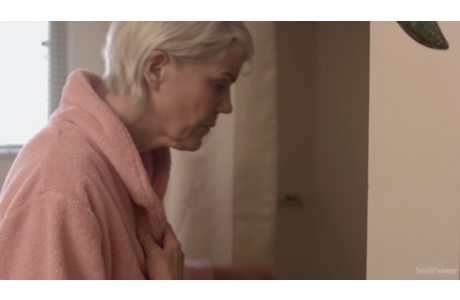Breast Cancer: Lymph Node Surgery for Staging Cancer
Topic Overview
Whether you have a mastectomy or breast-conserving surgery (lumpectomy) for breast cancer, your doctors need to know whether the cancer has spread to the lymph nodes. Lymph node involvement increases the likelihood that cancer cells have spread through the bloodstream to other parts of the body. Women with some forms of very early breast cancer, such as ductal or lobular carcinoma in situ, do not need lymph node testing.
There are two ways for your doctor to check the lymph nodes under your arm. They are:
- Axillary lymph node dissection. During this surgery, some of the lymph nodes in the armpit are removed and checked for cancer cells.
- Sentinel lymph node biopsy. This is a procedure in which tissue is removed from the lymph node closest to the cancer—the sentinel node (SN) or group of nodes—to help find out whether breast cancer has spread to this area.
If the lymph node biopsy results show cancer, more lymph nodes may be removed.
Removing lymph nodes from under the arm can sometimes cause lymphedema, a swelling in the arm.
In the past, doctors believed that removing as many lymph nodes as possible would improve chances for cure. But lymph node surgery itself does not improve your chances for a cure. Treatment with chemotherapy, hormone therapy, or targeted therapy offers the best chance of destroying cancer cells that have spread beyond the breast.
Credits
Current as ofDecember 19, 2018
Author: Healthwise Staff
Medical Review: Sarah A. Marshall, MD – Family Medicine
Kathleen Romito, MD – Family Medicine
Laura S. Dominici, MD – Surgery, General Surgery, Oncology
Current as of: December 19, 2018
Author: Healthwise Staff
Medical Review:Sarah A. Marshall, MD – Family Medicine & Kathleen Romito, MD – Family Medicine & Laura S. Dominici, MD – Surgery, General Surgery, Oncology




